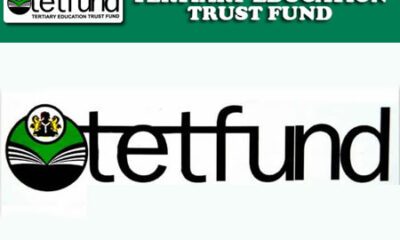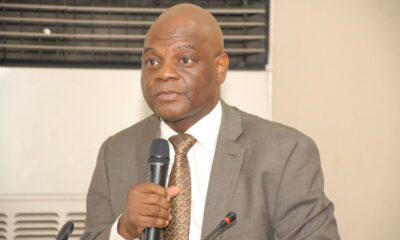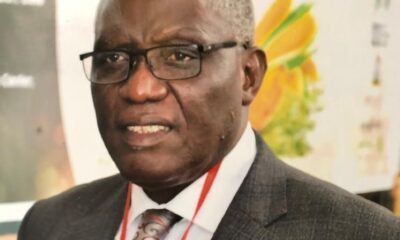Education
High exchange rate: TETFUND to suspend foreign scholarships for two years
The Tertiary Education Trust Fund (TETFUND) has revealed that it may suspend foreign scholarships for two years due to the high exchange rate.
The Executive Secretary (ES) of the Tertiary Education Trust Fund (TETFUND), Mr Sonny Echono, Tuesday, dropped the hint of the planned suspension at a public hearing organised by an ad-hoc committee of the House of Representatives on the alleged missing N2.3 trillion in TETFUND.
Mr Echono lamented the difficulty of the agency to access foreign exchange from the Central Bank of Nigeria (CBN).
According to the ES, the CBN always insisted they sourced their own forex to pay fees for scholars abroad.
He informed that the Fund will resort to local institutions for scholarships trainings.
He said, “We operate a system where our forex is being sold on our behalf at an official rate and we apply like anybody else to get it, sometimes it leads to additional cost.
“Currently, as I speak, we are in consultations with all our stakeholders to suspend foreign training for a year or two. This is because of the recent exchange rate adjustments, we are unable to continue based on our disbursement guideline. The money we allocated in naira cannot cover the dollar requirement for training. Those who are currently there, we now need more naira to pay for the dollar that is required for their annual fees. We are trying to put a hold.
“Most of our training now will be done locally through our experienced, first-generation universities and other specialised universities based here. This way we can retain our resources in house and cope with the change of foreign exchange variation.
“Some of the scholars that have been sponsored, unpatriotically when they go, they enjoy our scholarship, acquire a higher degree, they refuse to come back, it has become a major crisis.
“We are working with the staff unions for stringent and effective measures to be taken; currently before you are sponsored, you are made to sign a bond.
“The scholarship requires that you will come back. It is required that you have a guarantor and in many cases the guarantor has suffered undue hardship because when you disappear, we hold the guarantor to pay all the money expended on your behalf but that has not been effective.
“We believe that a system where we work with our embassies and the institutions, we can enforce the repayment for those who insist they will not come back.
“If they don’t, we will declare them ‘persona non grata.’ We will write to the embassies and they will make it available to those countries and they will not be able to get jobs. They will be seen as fugitives of law from their countries.
“We may have to take that hard stand because the numbers are alarming. We just checked about 40 institutions and over 137 absconders and the review is ongoing.
“It is a huge number that we cannot afford and so we will be seeking your support to strengthen some of the existing regulations to ensure that those who benefit from this programme must come back.
“We are not against people looking for greener pastures but do so on your own, not through our scholarship or through our sponsorship.”
Responding to the alleged missing N2.3 trillion in TETFUND, Echono said the allegations were unfounded.
According to him, the actual sum generated from education tax from 2011 to 2022 was N2.476 trillion out of which the Federal Inland Revenue Service (FIRS) retained N99 billion as cost of collection.
He said that the government had since 2013 borrowed N371.3 billion from the Fund out of which it has paid N48 billion so far.
“We do have challenges but these challenges and they have nothing to do with fraud. They are basically issues of governance and I would start by explaining what the challenges are. First in absolute terms so we have a clear picture of what we are talking about. From the year 2011 to 2022 total education tax collected by the FIRS as presented to us in their documentations, as confirmed from the statements we received from the Central Bank of Nigeria (CBN) which we have also attached for the Committee to peruse is N 2, 476, 733, 181, 679.75.
“Out of this amount, a total sum of N99 billion were retained by FIRS as cost of collection, leaving a balance of N2.37 trillion. So, the total fund that had hit education pool account at the CBN is N2.3 trillion from 2011 to date
“However, the FG over time in the course of governance and to meet pressing needs has borrowed funds from these accounts. The total borrowing is approximately N371.339 billion. These borrowings happened over time and most of the borrowings started in 2013.
“The FG acknowledges that it was borrowing and we have full documentation of this and all the correspondences that accompanied it. Other borrowings since then are being tabulated and given to you. We did secure presidential approval for the refund of this borrowing since 2015 and the FG has been refunding albeit in piecemeal.
“To date, total borrowing is over N371 billion. But total repayment to this date is about N48 billion. Last year N12.8 billion was given to us, this year another N12.89 billion was given to us. They are just paying. God knows how long this will take to defray the principal amount,” Echono said.
Education
TETFund installs transplant, urology equipment in 7 teaching hospitals
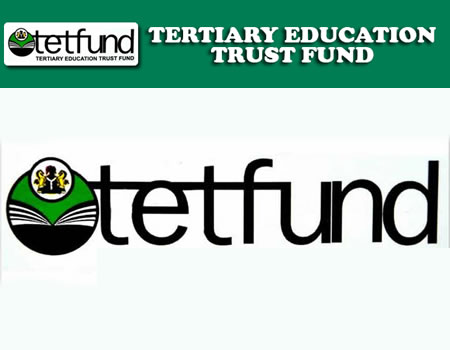

The Tertiary Education Trust Fund (TETFund) has completed the installation of transplant
and urology equipment for the treatment of prostate and kidney stone worth N250 million in seven hospitals.
Alhaji Umar Ali, the contractor handling the supply, who also represented Tetfund, told newsmen shortly after the installation of
the equipment at the Aminu Kano Teaching Hospital, Kano (AKTH).
He described the gesture as the first in seven government hospitals at a time for the benefit of those seeking health assistance.
He listed other benefitting health institutions to include: Aminu Kano (now Bayero Teaching Hospital University) (BUK), Abubakar Tafawa Balewa, Bauchi, Ahmadu Bello University (ABU) Zaria, University of Abuja, University of Benin Teaching Hospital, Benin.
Others are: University of Jos Teaching Hospital; and University of Maiduguri Teaching Hospital, Maiduguri.
He said that those seeking treatment for kidney stone, and kidney failure are on the increase on daily basis, hence intervention by Tetfund to find a lasting solution to their health challenges.
According to him, the fund has installed the equipment, tested and discovered to be in good working condition.
He added that “doctors have started using the equipment for research and practicals in the university, but all credits go to Tetfund, because without their intervention, it may not have been possible.”
Prof. Sani Aji from Bayero University, Kano, said with the modern technology, there may not be any need to cut open any patient.
He said that “before now, after patients have been operated on, they will stay in the hospital for like between 10-12 days before discharge, but now, they can go the same day of the operation if there is no complications.
“Very few centres have the facilities and they are all private, but with Tetfund intervention, this laser surgery will help a lot.”
On his part, Dr Przemyslaw Zugaj, one of the medical personnel invited from Poland to train doctors on how to handle the laser equipment on patients when conducting surgeries.
Zugaj explained that the surgery will destroy stones in the kidney and patients are checked properly, while it may not be necessary to repeat the surgery and it is cheaper.
He said with proper handling of the laser machine, there will not be need to open up patients, but carry out the operation successfully without bleeding.
One of the participants, Prof. Samuel Osaghae, also a Consultant Urologist from University of Benin, described the intervention as a special project.
He said the installation would facilitate indoor urology centre for kidney, urethra bladder and prostate, which would impact healthcare delivery in Nigeria positively.
Dr Haruna Usman from Abubakar Tafawa Balewa, Bauchi, said the gesture would be extended to other communities.
“This will reduce waste of resources and people will no longer need to travel out for surgeries,” he said.
Education
2024 WASSCE begins April 30 with 1,814,344 candidates
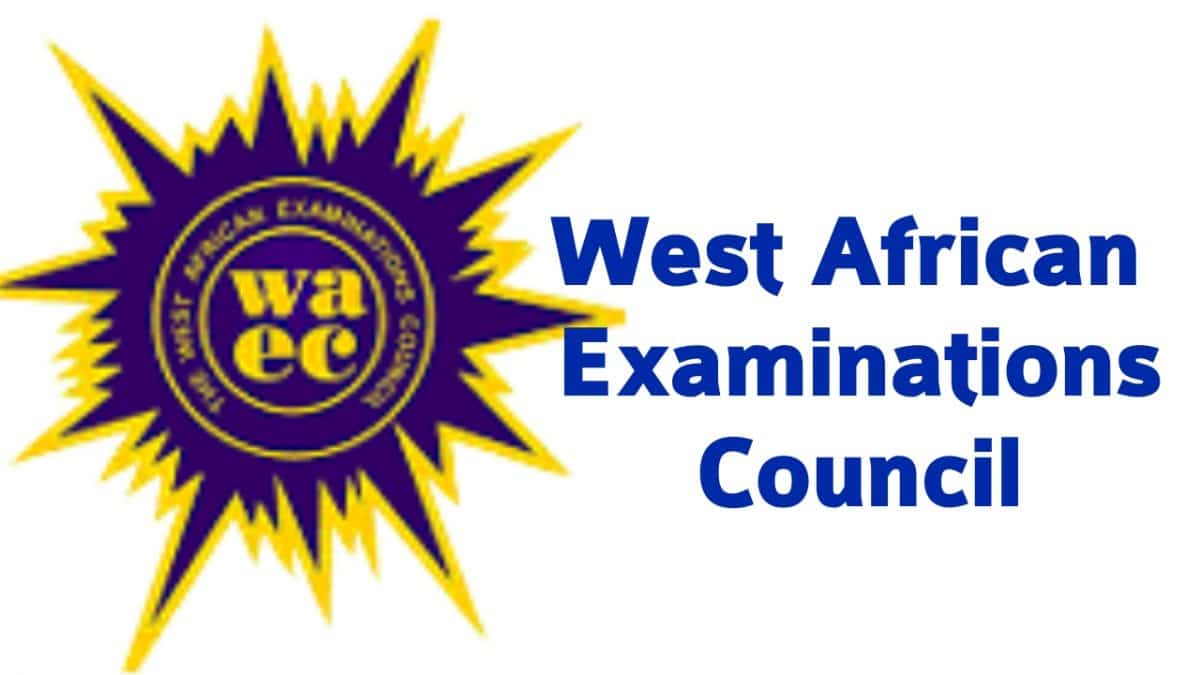

The West African Examinations Council (WAEC) says that 1,814,344 candidates from 22,239 schools, registered for the 2024 West African Senior School Certificate Examination (WASSCE).
The council’s Head of National Office (HNO), Dr Josiah Dangut stated this at a pre-examination interactive session with newsmen on Monday in Lagos.
He disclosed that candidates would be examined in 76 subjects, made up of 197 papers, with about 30,000 practicing Senior Secondary school teachers, nominated by various Ministries of Education, to supervise the examination.
“I want to intimate you all about the level of readiness of council, for its upcoming 2024 WASSCE (school candidates).
“All is now set for the commencement of the examination, fixed for Tuesday, April 30 to Monday, June 24 in Nigeria, spanning seven weeks and six days.
“This examination will be conducted in four WAEC member countries, namely, Nigeria, Gambia, Sierra-Leone and Liberia.
“Out of the total number of candidates that registered for the examination, 902,328 are males, while 912,016 others are females,” he stated.
According to him, the statistics shows that there is a further increase in the number of females and males that registered for the examination respectively, when compared to what was obtained in 2023.
Dangut added that on the whole, the candidature for this year, increased by 192,948.
The WAEC boss noted that in line with the directive of the Federal Government, the National Identification Number (NIN) was made a component of the registration process.
He added that the registration portal allowed candidates to submit their NIN.
On the issue of insecurity during the conduct of the examination nationwide, Dangut explained that council had stepped up efforts in ensuring extra security arrangements, especially in security prone areas.
“We cannot feign ignorance of the level of insecurity in the country.
“Conducting examinations has been challenging. Instances of insecurity exist in many places across the country and conducting examinations in insecurity-prone areas would require extra security arrangements.
“Consequently, we are liaising with the Inspector General of Police (IGP) and state governments, to provide adequate security to ensure that the examination is conducted nationally, in a safe and secured environment,” he said.
On the issue of examination malpractice, the HNO warned that council would not hesitate to deal decisively with candidates and examination functionaries, who engaged in such act.
According to him, penalties for involvement in examination malpractice are meted out on erring candidates, supervisors and schools, upon establishment of culpability, by the Nigeria Examinations Committee (NEC).
“The NEC is the highest decision-making organ of the council, that sits on examination matters in Nigeria.
“The council, on its part, has rolled out several awareness campaigns nationwide and organised seminars for school proprietors, principals, students and other key stakeholders, to sensitize them on the immediate and long-drawn effects of examination malpractice.
“Similarly, flyers, banners, posters and other forms of reminders to further keep the message fresh in the minds of all stakeholders and candidates sitting the examination have been rolled out.
“It is therefore, on this note that, I call on parents and guardians to encourage their wards to study diligently and desist from engaging in any form of examination malpractices.
“The mass media must come in handy, as efforts to rid our nation of this menace is a collective responsibility.
“The various ministries of education should call their principals, teachers and other officials serving as inspectors and/or supervisors, to order,” he said.
He also urged school principals and teachers to sensitize their students on the dangers of engaging in what he described as ‘terrible crime’ against humanity.
“Every candidate and examination functionary must play by the rules, which are well stipulated in the WAEC examination Syllabuses and Guidelines, for the conduct of examination, issued to schools.
“Erring schools would be derecognised, erring officials adequately punished, while erring candidates would lose their results, if found culpable,” he warned.
He also warned all operators of rogue websites to desist from their acts, noting that WAEC would not condone their heinous acts, during the conduct of the forthcoming examination.
“Parents are hereby cautioned to desist from patronising these evil-doers, who are hell-bent on frustrating the efforts of WAEC,” he said.
According to him, to further provide resource materials to aid candidates’ learning, WAEC has now introduced a compilation of past questions, with the marking schemes.
He noted that with the development, council was optimistic that candidates would use the booklets to enhance their study and preparedness for the examination.
The HNO added that already, WAEC had made available, its e-learning portal to assist candidates by providing learning materials, that would equip them with the requirements and expectations needed to write and pass their examination.
Dangut noted that this was with a view to proffering general guidance to teachers and other stakeholders.
“Students’ performances on previous examinations are analyzed, with regard to their general strengths and weaknesses, providing expert advice on the requirements for answering WASSCE questions.
“Candidates should visit https://WAEConline.org.ng for this service,” he said.
On the release of results, the HNO said in tune with council’s recent tradition, the results of candidates sitting the examination would be released, 45 days after the conduct of the last paper.
Dangut said that certificates would be printed and issued to schools in less than 90 days, after the release of results.
“Meanwhile, the results will be released alongside the digital copies of candidates’ certificates, which can be accessed on the Digital Certificate platform.
“I, therefore, ask that all hands be on deck, to ensure that WASSCE for School Candidates, 2024, is hitch-free.
“However, non-adherence to the registration deadline is still a lingering challenge in preparation for examinations.
“It may surprise you to hear that even though entries were floated by Dec. 5, 2023 and the registration exercise was scheduled to finally end on April 3, the council continued to extend its deadline on registration until late April, due to requests from different stakeholders.
“Such actions impact negatively on the preparation of pre-examination, examination and post-examination materials.
“The council, in collaboration with the Federal Ministry of Education, the State Ministries of Education, the Nigeria Police, other security agencies and other stakeholders, would do all it can, to deliver on its mandate to conduct a credible examinations to the Nigerian child and the general public,” he said.
Education
UK varsity offers Nigerians N44m scholarships
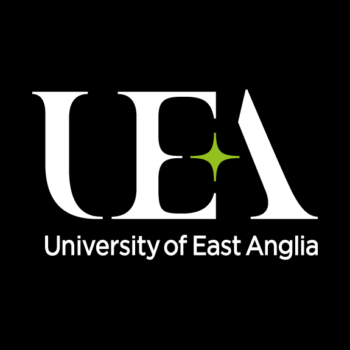

The University of East Anglia, situated in Norwich, United Kingdom, has announced a £33,150 (N44.3 million) worth of scholarships and travel costs of £4000 (N5.3 million) to Nigerians and other applicants seeking masters in Plant and Health in its institution.
The funding, according to information gathered on the school’s website on Wednesday, is the David Sainsbury Scholarships in Global Plant Health, which is fully funded for students planning to travel to the UK for study.
The scholarship also covers postgraduate researcher stipend level, which they said would be determined later for the session of admission, adding that the previous academic year was £18,622.
The university also noted that the application is for the 2024/2025 Academic Session, which will begin in September.
While wooing prospective and eligible applicants, the school wrote, “The Sainsbury Laboratory (TSL) offers the prestigious David Sainsbury Scholarships in Global Plant Health to a limited number of applicants on the MSc in Global Plant Health.
“Each full scholarship will cover up to the full cost of the tuition fee (£33,150 for 2024-25), maintenance grant (exact value at the UKRI postgraduate researcher stipend level to be determined for 2024-25; in 2023-24, it was £18,622), and an additional £4,000 for travel costs (subject to valid economy class travel receipts).
“You are eligible for a full scholarship under these terms if you meet all these criteria: You are in receipt of an offer of a place on the UEA MSc in Global Plant Health; You are a national of or domiciled in a least-developed, low-income, or lower-middle-income country or territory as defined by the Overseas Development Agency Development Assistance Committee (DAC) list, version 2024-25 for entry in 2024-25 academic year.
“There are a limited number of scholarships available, and these will be awarded throughout the year, so you are advised to apply early.”
The institution further added that once the criteria for admission are met, the applicants are eligible for receipts of an offer of a place on the UEA MSc in Global Plant Health.
It further advised that more scholarships will be updated on their website in May while encouraging applicants to always check for updates.
-
capital market2 years ago
Rt.briscoe, FBNH, Others halts negative performance of stock market
-
Finance3 months ago
Court orders Sen. Victor Umeh to repay N136m bank debt to AMCON
-



 Abuja Update2 months ago
Abuja Update2 months agoUNDP, FG partnership needed to achieve inclusion, equity- Minister
-
Abuja Update1 month ago
Banks drive stock market performance with N147bn gain
-



 Business1 week ago
Business1 week agoTingo Group unveils Tingo Electric, Tingo Cola drink at Lagos launch
-



 Health2 weeks ago
Health2 weeks agoCapacity training will reduce migration of health workers- NPHCDA
-
News4 months ago
Oil thieves sponsoring malicious media campaign against Navy – Spokesman
-



 Infotech1 month ago
Infotech1 month agoWorld Backup Day: NITDA urges Nigerians to ensure backup of data

